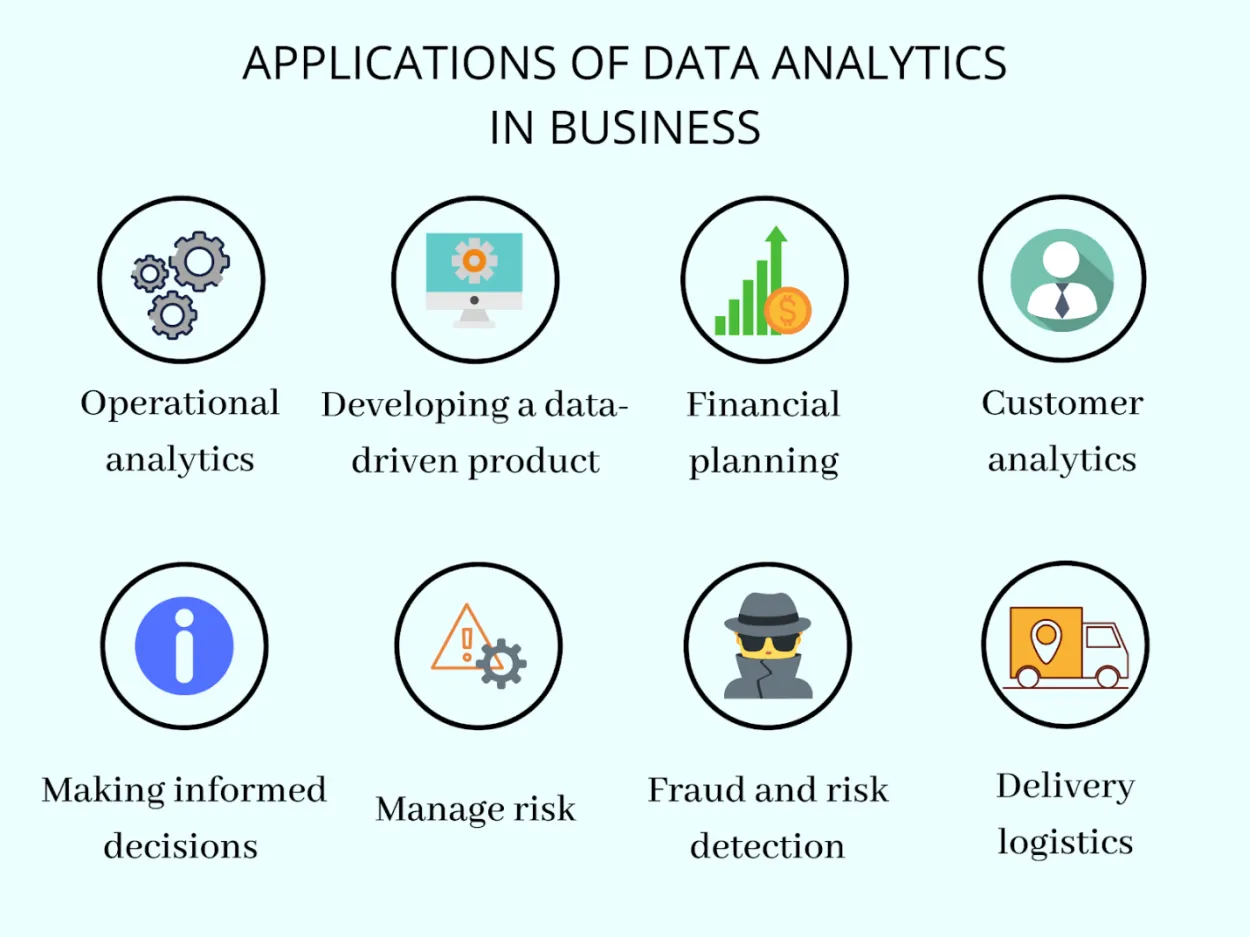In today’s fast-paced business world, the importance of data analytics cannot be overstated. With vast amounts of data being generated every second, businesses need to harness this information to make informed decisions and gain a competitive edge. In this article, we will explore the significance of data analytics in driving business success.
Utilizing Data to Drive Business Decision-Making
Data analytics plays a crucial role in today’s business landscape. It involves the collection, analysis, and interpretation of large sets of data to uncover valuable insights and patterns. By leveraging data analytics, businesses can make informed decisions that drive growth and success.
One of the key benefits of data analytics is its ability to provide businesses with a competitive edge. By understanding customer preferences, market trends, and industry dynamics through data analysis, organizations can adapt their strategies to meet changing demands. This enables them to stay ahead of the competition and drive innovation.
Data analytics also helps businesses identify areas for improvement and optimization. By analyzing internal data, companies can identify bottlenecks, inefficiencies, or weak spots in their operations. This allows them to make data-driven changes that streamline processes, enhance productivity, and reduce costs.
Moreover, data analytics enables businesses to personalize their offerings and deliver exceptional customer experiences. By analyzing customer data, such as purchase history and browsing behavior, companies can tailor their products, services, and marketing campaigns to individual preferences. This targeted approach not only enhances customer satisfaction but also increases customer loyalty and retention.
Furthermore, data analytics empowers businesses to make accurate forecasts and predictions. By analyzing historical data and market trends, companies can anticipate future demands, identify potential risks, and develop proactive strategies. This foresight helps businesses mitigate risks, seize opportunities, and make well-informed decisions that drive profitability.
In conclusion, data analytics is of utmost importance in modern businesses. By harnessing the power of data, organizations can gain valuable insights, optimize operations, enhance customer experiences, and make informed decisions. When utilized effectively, data analytics becomes a powerful tool that drives growth, innovation, and success in today’s competitive business landscape.
Data Analytics Tools and Techniques
Data analytics is a vital component of business operations in the digital age. It involves the collection, analysis, and interpretation of large sets of data to gain insights and make informed decisions. To effectively implement data analytics strategies, businesses rely on various tools and techniques.
1. Data Visualization: Tools like Tableau and Power BI help to visually represent raw data in the form of graphs, charts, and interactive dashboards. This allows businesses to identify patterns, trends, and correlations easily.
2. Predictive Modeling: Techniques such as regression analysis and machine learning algorithms enable businesses to forecast future outcomes based on historical data. These models help in making accurate predictions and identifying potential opportunities or risks.
3. Data Mining: Tools like RapidMiner and KNIME aid in extracting valuable information from large datasets. These tools use algorithms to discover patterns and relationships that can be useful for business decision-making.
4. Text Mining: Tools like IBM Watson and RapidMiner text mining extensions enable businesses to analyze unstructured data such as customer feedback, social media comments, and online reviews. This helps in understanding customer sentiments and improving products or services.
5. Cloud-based Analytics: Platforms like Google Analytics and Amazon Web Services offer cloud-based solutions for storing, analyzing, and visualizing data. These services provide scalability, cost-effectiveness, and real-time data analysis capabilities.
6. Statistical Analysis: Software like SPSS and SAS assist businesses in performing statistical tests to validate hypotheses, analyze market trends, and measure the effectiveness of marketing campaigns. Statistical analysis helps in evidence-based decision-making.
Data analytics tools and techniques empower businesses to optimize operations, improve customer experiences, and gain a competitive edge. By harnessing the power of data, businesses can make informed decisions that drive growth and success.
Interpreting and Applying Data Insights
Data analytics plays a critical role in the success of businesses today. The ability to interpret and apply data insights can provide organizations with valuable information that can drive growth, enhance decision-making, and optimize operations.
When it comes to data analytics, businesses are faced with vast amounts of information to sift through. However, without proper interpretation, this data is meaningless. Interpreting data insights involves analyzing the data to identify patterns, trends, and correlations that can provide valuable insights into consumer behavior, market trends, and internal processes.
Once data insights are interpreted, the next step is to apply them strategically. Organizations can use these insights to improve their products or services, refine their marketing strategies, identify potential risks and opportunities, and make data-driven decisions at every level of the business.
Data analytics also helps in optimizing business operations. By analyzing data, businesses can identify bottlenecks, inefficiencies, or areas that require improvement. This allows companies to streamline their operations, reduce costs, and enhance overall efficiency.
Moreover, data analytics enables businesses to stay ahead of their competition. By constantly monitoring and analyzing data, organizations can identify emerging trends, customer preferences, and market demands. This knowledge empowers businesses to adapt quickly, anticipate changes, and innovate.
In conclusion, interpreting and applying data insights are crucial for businesses to thrive in today’s competitive landscape. It provides the necessary knowledge to make informed decisions, optimize operations, and stay ahead of the curve. By harnessing the power of data analytics, businesses can unlock their true potential and achieve sustainable growth.
Conclusion
In conclusion, data analytics plays a crucial role in today’s business landscape. It provides valuable insights, helps businesses make informed decisions, and drives growth and success. With the increasing availability of data and advanced analytics tools, companies that leverage data analytics are better positioned to gain a competitive edge and achieve long-term success in their industries.




